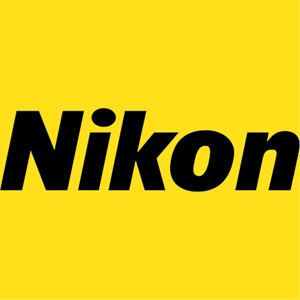Optical Lenses
Which lenses to choose?
At Onghena Opticiens we work with all brands of spectacle lenses. We look at what glasses are on the market and constantly look at which brand and glass type have the most to offer in terms of price-quality.
We also leave the choice to our customers, if you have a preference this is of course always possible. With us everyone is free. If you now opt for Zeiss, Varilux or Nikon lenses, ... that's no problem. If you have no idea about this, our team of 9 opticians is ready to give you the right advice.
How much do glasses cost?
That is a question that is often evasively answered. How much will your glasses cost. It goes without saying that the price will always depend on a number of factors
Which factors play a role in the price of glasses?
- Your correction (the strength)
- What type of glasses (unifocal, bifocal, computer glasses or multifocal glasses)
- Finishing of the glasses (discoloring, colored, anti-reflective, prism, blue filter, ...)
- In which frame do the glasses come?
- What quality do I want
Your correction
The correction of the glasses plays a role to the extent that we will use this to choose whether we need diluted glasses or not. The thinner the glass must be made, the more the spectacle lens will cost.
What type of glasses
Unifocal glasses - only far or closed
Bifocal glasses - glasses for far and wide with a visible reading piece
Computer glasses - glasses for near and intermediate view, not for far
Multifocal glasses - glasses for distant, intermediate view and near
Finishing theglasses
Each lens can be finished differently, always according to your personal needs. For example, if you are photosensitive, a light, solid tint on your glasses will have a soothing effect. A discolouring glass can be very useful if you spend a lot of time outside and you don't always have to think about your sunglasses.
These days, a mirage is usually put on glasses. This coating provides a clearer, sharper and more pleasant vision for the glasses wearer, but also gives an aesthetic added value to the glasses. It looks like there are no glasses in your glasses. For example, the person you are talking to has no annoying reflections and he sees your eyes instead of himself in your glasses. You usually recognize a dull reflection by the green, blue or purple residual color on the glass.
Nowadays spectacle lenses are often equipped with a blue filter, this blue filter is a coating that filters out the harmful blue light. Blue light is a frequency of light that is mainly found in LED lighting. This blue light is harmful to our eyes. Unfortunately we are exposed to it very often these days. Just think of tablets, computer screens and smartphones that we use all day long. A spectacle lens with a blue coating can therefore offer a solution for this.
In which frame do the glasses come?
This seems like a strange factor that can influence the price of your glasses, but it is still an important thing. From a technical point of view, it is sometimes necessary to put diluted lenses in a frame without your correction being very high. For example, we think of glass glasses (glasses without rim) from Lindberg or Cartier . Holes are drilled in the glasses of these glasses so that all parts can be fixed in the glass. Because there is so much tension on the lenses, we have to choose a resilient but at the same time very strong, solid lens. Strange but true, a diluted spectacle lens is many times stronger against breakage than a - somewhat thicker - undiluted spectacle lens. The material that diluted glasses are made of is many times smoother and stronger, but it is also slightly more expensive.
What quality do I want
The quality of a spectacle lens is determined by many factors. Here we think of the clarity, the quality of the protective layers, the distortions that can be in a spectacle lens and many other things that can play a role in this. At Onghena Opticiens, we only work with renowned quality brands such as Nikon, Zeiss, Varliux, Essilor or BBGR . All of them A-Brand manufacturers of spectacle lenses. This way we can also offer you the best service and guarantees.
If we look further at specifically multifocal lenses, there are a few other factors that play a role in quality. Here it is also about the above points but in addition we also have to make the choice in comfort.
A multifocal glass has been sold for decades and has evolved enormously over the years. In the early years, this type of glass was revolutionary, but it soon came up against the limits of the possibilities of such a glass. Due to the technical evolutions that we have undergone in the last 10 years in terms of multifocal lenses, we have now been given a choice of personalized multifocal lenses and the more standard lenses that are older in terms of technology.
The difference? Quite simply, the current generation of multifocal lenses will ensure that you have virtually no restrictions or distortions in your field of vision where the old generation of lenses will give you a more limited look through your lenses and this is reflected in the width of your lens. sight. With the latest generation of multifocal lenses you will be able to move your eyes more easily from left to right and you will hardly notice any distortions with the older lenses you will have to move much more with your head. The newest lenses are also made to the frame where they need to be. The manufacturer takes into account the position of your eyes in the glass but also how your frame looks. How far is the glass from your eyes, how bent is your frame, how big are you, write with left or right ... so on. Customization therefore. So it goes without saying that many different prizes are linked to this. You already have a basic, standard multifocal glass for € 150 per glass, but you can go as far as you want here.
|
|
|




